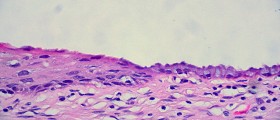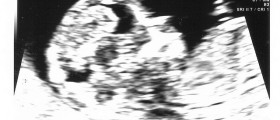
Miscarriage
Miscarriage, or spontaneous abortion, is a pregnancy that suddenly ends before the fetus can survive. It is a very common and usually occurs in the first 12 gestation weeks.
Causes of Miscarriage
Spontaneous abortion is common in women aged over 35 and in multiple pregnancies. Approximately 1 in 200 women experiences repeated miscarriages. Miscarriage occurs due to separation of the fetus and placenta from the uterine wall. Although exact cause of miscarriage is frequently unknown, the most common reasons include the following ones.
Chromosomal AbnormalitiesAn abnormal embryo causes almost all spontaneous abortions during the first trimester of pregnancy. Miscarriage due to genetic problems of fertilized eggs can occur before a woman becomes aware of pregnancy. This usually happens from unknown reason but sometimes it can be because of underlying problem with either of parents. This will be particularly possible if a woman experiences repeated miscarriages or either mother or father has relatives with defective genes. This risk increases with woman’s age.
Chronic Illness
Certain illnesses in the mother can result in miscarriages. These conditions can be diabetes, severe hypertension, kidney disease, lupus, herpes simplex, chlamidia or problems with thyroid gland. Such spontaneous abortions are common in third trimester. Prenatal care and special monitoring are vital in order to avoid this cause of miscarriage.
Hormone ImbalanceImbalance in hormones, especially progesterone can be the cause of miscarriage. Lack of hormone progesterone results in impaired uterine lining, which can’t maintain fertilized egg. To treat this problem, women receive progesterone supplements in form of injection or vaginal and rectal suppositories. Diabetes mellitus and thyroid disease can also cause hormone imbalance.
Abnormalities of the Internal Female Organs
Abnormal uterus or cervix may result in a miscarriage. Fibroids of uterine muscle tissue can also be the cause. Weak cervix can discharge the fetus if it dilates before labor term. These problems can be diagnosed with x-rays, hysteroscopy or laparoscopy. Surgery is the best treatment for abnormalities of uterus. After surgery up to 90% of pregnancies are successful. Weak cervix can be stitched to prevent widening until the baby reaches term.
Problems with Immune System
Some autoimmune diseases such as lupus can provoke recurrent spontaneous abortions in women. This is due to antibodies that distinguish a fetus as foreign body. Also some women have certain antibodies in the blood, which make them prone to miscarriage.
Other Causes
Alcohol and smoking can increase the risk of miscarriage. Listeriosis (Listeria infection) and malaria are some of infections that can result in miscarriage as well.







-Why-Some-Women-Take-This-Type-Of-Progesterone-During-Early-Pregnancy_f_280x120.jpg)







Your thoughts on this
Loading...